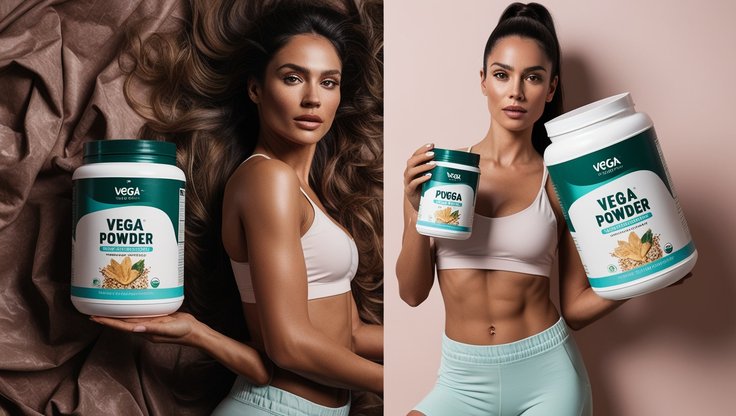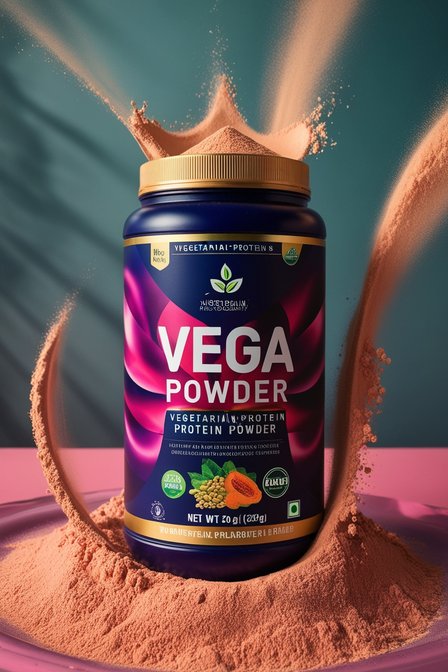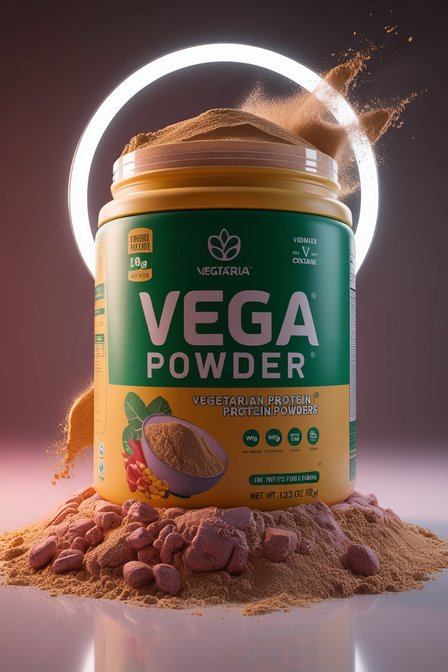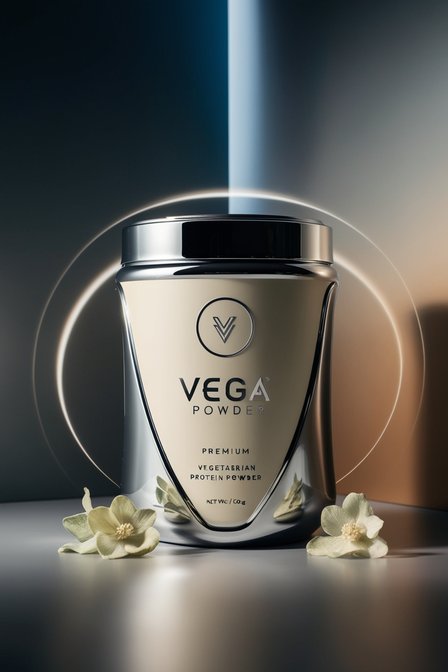Vegan Protein Powder Without Soy: A Comprehensive Guide
Introduction to Vegan Protein Powder
In recent years, the popularity of veganism has soared, with more people adopting plant-based diets for health, environmental, and ethical reasons. One significant challenge for vegans is ensuring they get enough protein, an essential macronutrient for muscle repair, immune function, and overall health. Traditional protein sources like meat, dairy, and soy are not options for many vegans due to allergies or dietary choices. This has led to the rise of vegan protein powders that exclude soy, offering a diverse range of alternatives.
Understanding Vegan Protein Powders
Vegan protein powders are supplements derived from plant sources. They are designed to provide a high protein content without the use of animal products. Common sources include peas, rice, hemp, pumpkin seeds, and quinoa. These powders are suitable for those with dietary restrictions, including vegans, vegetarians, and individuals with soy allergies.
Benefits of Soy-Free Vegan Protein Powder
Soy-free vegan protein powders offer several benefits. First, they cater to individuals with soy allergies or intolerances, providing a safe alternative. Second, they avoid the potential hormonal effects of soy, which contains phytoestrogens that can mimic estrogen in the body. Lastly, these powders are often hypoallergenic and gentle on the digestive system, making them suitable for people with sensitive stomachs.
Types of Vegan Protein Sources
Pea Protein: Pea protein is derived from yellow split peas and is known for its high digestibility and balanced amino acid profile. It is rich in branched-chain amino acids (BCAAs), which are crucial for muscle growth and recovery. Pea protein is also hypoallergenic, making it an excellent choice for those with food sensitivities.
Rice Protein: Brown rice protein is another popular option. It is easily digestible and hypoallergenic. While rice protein is not a complete protein on its own, when combined with other plant-based proteins like pea or hemp, it provides a comprehensive amino acid profile.
Hemp Protein: Hemp protein is made from hemp seeds and is praised for its high omega-3 and omega-6 fatty acid content. It is also a complete protein, containing all nine essential amino acids. Hemp protein is easily digestible and packed with fiber, which aids in digestion and overall gut health.
Pumpkin Seed Protein: Pumpkin seed protein is derived from raw pumpkin seeds. It is a rich source of magnesium, zinc, and iron, and offers a good amino acid profile. Pumpkin seed protein is also hypoallergenic and easy to digest, making it a suitable option for many individuals.
Quinoa Protein: Quinoa is a complete protein, meaning it contains all nine essential amino acids. Quinoa protein powder is derived from the quinoa seed and is known for its high nutrient content, including vitamins, minerals, and fiber. It is an excellent option for those seeking a well-rounded protein supplement.
Nutritional Profile and Benefits
Each type of vegan protein powder has its unique nutritional profile. For example, pea protein is high in BCAAs, which support muscle growth, while hemp protein provides a balance of omega-3 and omega-6 fatty acids, which are beneficial for heart health. Pumpkin seed protein offers high levels of magnesium and zinc, essential for muscle function and immune health. Quinoa protein is rich in fiber and provides a broad range of vitamins and minerals.
Choosing the Right Vegan Protein Powder
When selecting a vegan protein powder, consider the following factors:
Nutritional Content: Look for a protein powder with a high protein content per serving, ideally 15-25 grams. Check the amino acid profile to ensure it includes all essential amino acids.
Digestibility: Choose a protein powder that is easily digestible and does not cause gastrointestinal discomfort. Pea, rice, and hemp proteins are generally well-tolerated.
Allergens: Ensure the protein powder is free from common allergens like soy, gluten, and dairy. Many vegan protein powders are hypoallergenic, but it is essential to read the label carefully.
Taste and Texture: Taste and texture can vary significantly between different protein powders. Some have a smooth, creamy consistency, while others may be grainy. Try different brands and flavors to find one that suits your palate.
Additives: Avoid protein powders with unnecessary additives, artificial sweeteners, or fillers. Look for products with minimal ingredients and natural sweeteners like stevia or monk fruit.
Incorporating Vegan Protein Powder into Your Diet
There are various ways to incorporate vegan protein powder into your daily diet:
Smoothies: One of the most popular ways to consume vegan protein powder is by adding it to smoothies. Blend it with your favorite fruits, vegetables, and a plant-based milk for a nutritious and delicious meal replacement or post-workout shake.
Baking: Vegan protein powder can be used in baking to increase the protein content of your favorite recipes. Add it to pancakes, muffins, cookies, and energy bars for a protein boost.
Oatmeal: Stir a scoop of vegan protein powder into your morning oatmeal for a protein-rich breakfast. It adds flavor and a creamy texture to your oats.
Yogurt: Mix vegan protein powder into plant-based yogurt for a high-protein snack. Top with fresh fruits and nuts for added nutrients.
Soups and Stews: Add a scoop of unflavored vegan protein powder to soups and stews to increase their protein content without altering the taste.
Potential Drawbacks and Considerations
While vegan protein powders offer numerous benefits, there are some potential drawbacks to consider:
Cost: Vegan protein powders can be more expensive than traditional protein powders. The cost can vary depending on the source and brand. However, the investment may be worth it for those with dietary restrictions or allergies.
Taste and Texture: Some individuals may find the taste and texture of vegan protein powders less appealing than whey or soy-based powders. Experimenting with different brands and flavors can help find a product that suits your preferences.
Nutrient Density: While vegan protein powders are a convenient protein source, they may not provide the same nutrient density as whole foods. It is essential to maintain a balanced diet with a variety of plant-based protein sources.
Processing: Some vegan protein powders undergo extensive processing to isolate the protein, which can strip away other beneficial nutrients. Opt for minimally processed powders whenever possible.
Conclusion
Vegan protein powders without soy offer a versatile and nutritious alternative for those seeking to boost their protein intake while adhering to a plant-based diet. With various options like pea, rice, hemp, pumpkin seed, and quinoa protein, there is a suitable choice for everyone. These powders provide numerous health benefits, including muscle growth, heart health, and immune support, while catering to individuals with dietary restrictions and allergies.
Choosing the right vegan protein powder involves considering factors like nutritional content, digestibility, allergens, taste, and additives. Incorporating these powders into your diet is easy, with options like smoothies, baking, oatmeal, yogurt, and soups. While there are potential drawbacks, such as cost and taste preferences, the benefits often outweigh these concerns.
Embrace the world of vegan protein powders and discover how they can enhance your health and wellness journey. With the right product, you can enjoy a balanced and protein-rich diet that aligns with your values and dietary needs.




